Amazon opens London tech 'loft' – the first outside the US
Company says hub will offer support to the sizable community of technology startups in the Capital
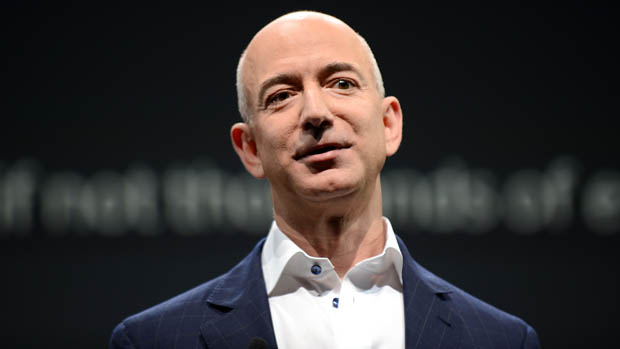
A free daily email with the biggest news stories of the day – and the best features from TheWeek.com
You are now subscribed
Your newsletter sign-up was successful
Amazon has announced it will open a 'loft' – its own jargon for technical support hubs for its cloud computing arm – in London next month, marking the first time it has rolled out such a facility outside America.
The Financial Times says [1] the company's Amazon Web Services arm generated $5.16bn in revenue in the year ending March, having gravitated upmarket from an initial customer base of US startups to "Fortune 500 companies and the US government". It rents out computing power and data storage for businesses that are operating increasing in 'the cloud'.
The centre, which will offer "individuals and businesses technical support and training in person", will be based near the east London cluster of digital startups. Similar spaces have been launched in San Francisco and New York, and Amazon described London as the first "obvious choice" for its first non-US launch. It already has a significant number of customers in the UK, including Just Eat and Swiftkey.
The Week
Escape your echo chamber. Get the facts behind the news, plus analysis from multiple perspectives.

Sign up for The Week's Free Newsletters
From our morning news briefing to a weekly Good News Newsletter, get the best of The Week delivered directly to your inbox.
From our morning news briefing to a weekly Good News Newsletter, get the best of The Week delivered directly to your inbox.
The Register notes that the London launch will be swiftly followed by an opening in Berlin in October, as the company seeks to expand rapidly. Based on figures in the most recent company results, Amazon spent $1.21bn (£770m) on purchases of property and equipment in the second quarter "and a good chunk of that was likely to have gone towards building out data centres", it says.
Bezos rejects 'soulless, dystopian' Amazon claims
18 August
Jeff Bezos has been forced into a rare defence of working practices at Amazon, the company he built into the largest retailer in the world, after a New York Times article which paints a picture of a "soulless, dystopian workplace" went viral.
A free daily email with the biggest news stories of the day – and the best features from TheWeek.com
In the lengthy expose published at the weekend, the paper accuses Amazon of "conducting a little-known experiment in how far it can push white-collar workers, redrawing the boundaries of what is acceptable". Among the worst accusations are claims dozens of staff are forced out in annual culls described as "purposeful Darwinsim" and that "workers who suffered from cancer, miscarriages and other personal crises" are routinely "evaluated unfairly or edged out".
Bezos, whom Forbes says "seldom gives interviews and rarely addresses public criticism of his company or its products" felt compelled to respond. He circulated a note to employees who urged them to give the Times piece "a careful read", in which he stresses "shockingly callous management practices" must be reported, giving his own email address.
But he also says the piece doesn't "describe the Amazon I know or the caring Amazonians I work with every day". He adds he doesn't "recognise… claims that our intentional approach is to create a soulless, dystopian workplace" and that if the allegations were true it would not "survive, much less thrive, in today's highly competitive tech hiring market".
In a separate rebuttal published on LinkedIn, Nick Ciubotariu, head of infrastructure development in Amazon's search experience department, dismisses comments from a former employee that a brutal feedback regime leaves "nearly every employee" in tears at one point or another. If it were true, management of the department should be "ashamed", he said.
Ciubotariu, who insists that nobody at Amazon "asked me to write this article, or had any idea that I would write it", says the New York Times "didn't take the time to write a fact-based article" and that while some of the claims may have been true in the past, "it is definitely not the Amazon of today".
Is Amazon Fresh poised to launch in London?
11 August
A grocery delivery service from US ecommerce giant Amazon could be launching in London in the very near future.
Speculation has been triggered by news the company has taken out a ten-year lease on a warehouse previously used by Tesco in Weybridge, Surrey.
The Guardian says the site would be "ideally positioned" just inside the M25 to deliver fresh food to shoppers in London. Reports earlier in the summer indicated the company was set to launch Amazon Fresh as soon as the autumn, with a rollout in Leeds expected to follow next year.
Amazon confirmed it was opening a delivery station in Weybridge, but declined to comment on "rumour and speculation" that it would be launching Amazon Fresh in the UK. It will employ 20 people directly at the site, with four independent delivery companies also hiring 140 drivers to work from the station, in line with suggestions it will use third parties to deliver groceries.
Trade magazine Retail Week reports the warehouse already has some food-handling facilities such as chiller cabinets and that Clegg Food Projects, which creates processing and distribution facilities for the food and drink industry worldwide, has been appointed to undertake renovations prior to Amazon’s arrival in September.
Amazon Fresh is already up and running across a number of US cities. The service is available to Amazon Prime customers, who pay a single, bundled subscription of $299 a year to order for same or next day delivery, putting the cost of the grocery delivery service at $200 on top of the standard $99 membership fee. A similar model would be used in the UK, where an Amazon Prime membership currently costs £79.
The Weybridge site will be Amazon’s 15th delivery station in the UK. It is one of two locations taken on in a long-term lease deal with owner Logicor, alongside a warehouse in Bardon, Leicestershire.
Amazon soars but will it stay in the black?
24 July
Amazon shares soared in after-hours trading on Thursday evening after it posted a surprise profit that smashed analyst expectations, pushing its value up by $63bn to make it the largest retail business in the world.
The Guardian reports that shares rose more than 17 per cent in extended trading on the Nasdaq, boosting the company's value at one point to $270bn. This puts it well ahead of the $233bn valuation commanded by supermarket group Wal-Mart, with the surge adding $7bn to the personal fortune of Amazon founder Jeff Bezos in just 45 minutes.
The surge was prompted by the latest quarterly earnings figures which showed the company made a $92m profit on revenues of $23.2bn. This equates to earnings per share of $0.19, well ahead of a consensus forecast for a loss of $0.13 per share on revenues of $22.2bn.
The key question now is whether positive earnings will last at a company famed for sacrificing short-term gains in favour of long-term investment. The Wall Street Journal says the fact the company has now turned a profit in eight of the last 14 quarters since 1992 will "raise questions as to whether this is the new normal". The Washington Post notes that the company had made losses in five of the previous three reporting periods, including a loss of $126m in the previous quarter.
Raymond Baird analyst Colin Sebastian told Business Insider the unexpected surge had been driven largely by Amazon's services businesses, including the AWS cloud computing unit which competes with the likes of Google and Microsoft, and its third-party marketplace activities that sells other retailers goods through its website.
The analyst said there also appeared to "some element of expense control" but warned investors not to be too bullish on future profits. "The key question is are they actually harvesting earnings now, or is it more just a pause in investment spending?"
Amazon Fresh puts Ocado on back foot
20 July
Ocado has recovered modestly in Monday trading after a sharp fall at the end of last week, prompted by widespread reports that Amazon is about to park its trucks in the UK company's turf. Several sources suggested that the US web giant is planning to bring its Amazon Fresh grocery delivery service across the Atlantic as early as this autumn.
At 3pm the company was trading up 0.75 per cent at 436.20 pence per share, having fallen almost seven per cent on Friday as investors in the US took fright. According to the Daily Telegraph, this was caused in part by speculation that Amazon Fresh's UK launch could come as soon as September, beginning with a trial in London.
There was also a shift in sentiment ahead of an announcement of an international distribution deal, which the Financial Times suggests could "underwhelm" previous expectations.
The Times reports that one "retail insider" said Amazon was targeting 2 per cent of the UK's estimated £149bn grocery market, which is about three times the market share of Ocado, the UK's largest online-only grocer, with £1bn in sales.
Amazon Fresh has been operating since 2007 in Seattle and has since expanded slowly into cities including Los Angeles, New York and San Diego. Estimates suggest it now represents about 2.7 per cent of online grocery shopping across the US.
The service is available to Amazon Prime customers, who pay a single, bundled subscription of $299 a year to order for same or next day delivery, putting the cost of the grocery delivery service at $200 a year on top of the standard $99 membership fee.
The Prime delivery and TV service costs £79 a year in the UK. After a free trial, it is likely that Amazon Fresh would attract an additional membership cost.
-
 Political cartoons for February 21
Political cartoons for February 21Cartoons Saturday’s political cartoons include consequences, secrets, and more
-
 Crisis in Cuba: a ‘golden opportunity’ for Washington?
Crisis in Cuba: a ‘golden opportunity’ for Washington?Talking Point The Trump administration is applying the pressure, and with Latin America swinging to the right, Havana is becoming more ‘politically isolated’
-
 5 thoroughly redacted cartoons about Pam Bondi protecting predators
5 thoroughly redacted cartoons about Pam Bondi protecting predatorsCartoons Artists take on the real victim, types of protection, and more
-
 Is the job market frozen or faltering?
Is the job market frozen or faltering?Today's Big Question Layoffs raise alarms while young workers eye law school
-
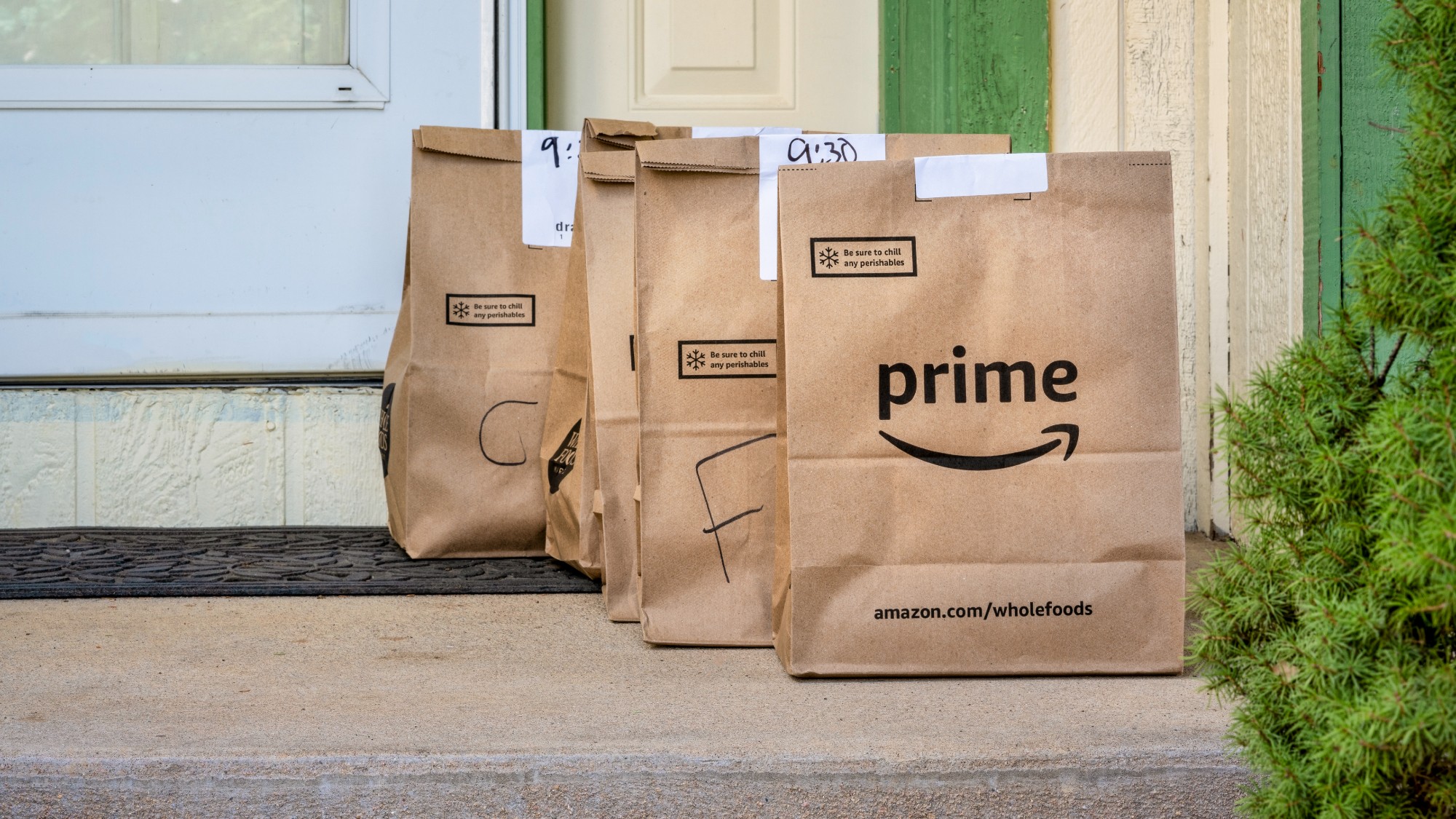 Is Amazon about to take over the grocery business?
Is Amazon about to take over the grocery business?Today's Big Question Expanded delivery will present a challenge to Walmart and Kroger
-
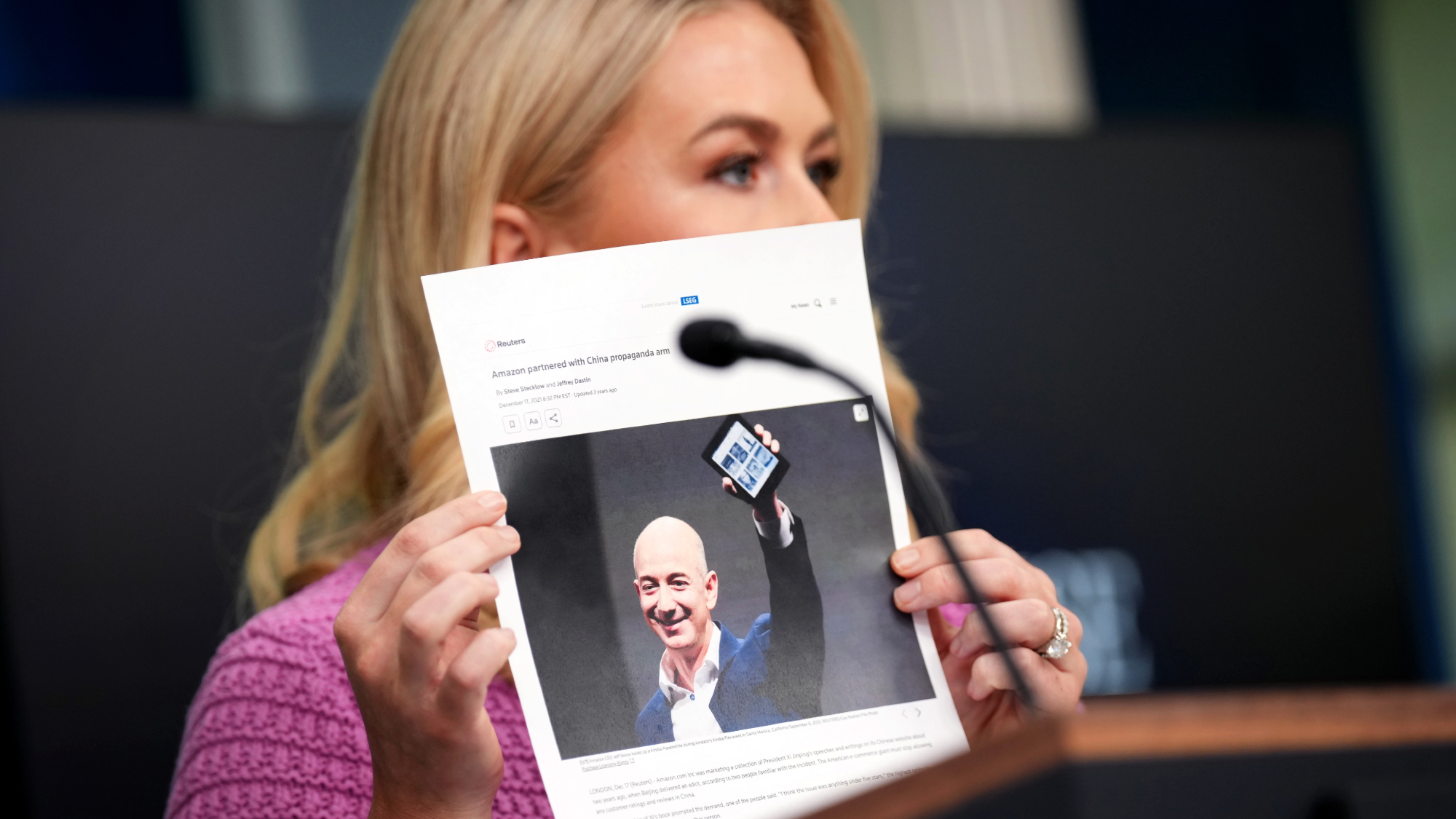 Trump calls Amazon's Bezos over tariff display
Trump calls Amazon's Bezos over tariff displaySpeed Read The president was not happy with reports that Amazon would list the added cost from tariffs alongside product prices
-
 What's Jeff Bezos' net worth?
What's Jeff Bezos' net worth?In Depth The Amazon tycoon and third richest person in the world made his fortune pioneering online retail
-
 Amazon's 'James Bond' deal could mean a new future for 007
Amazon's 'James Bond' deal could mean a new future for 007In the Spotlight The franchise was previously owned by the Broccoli family
-
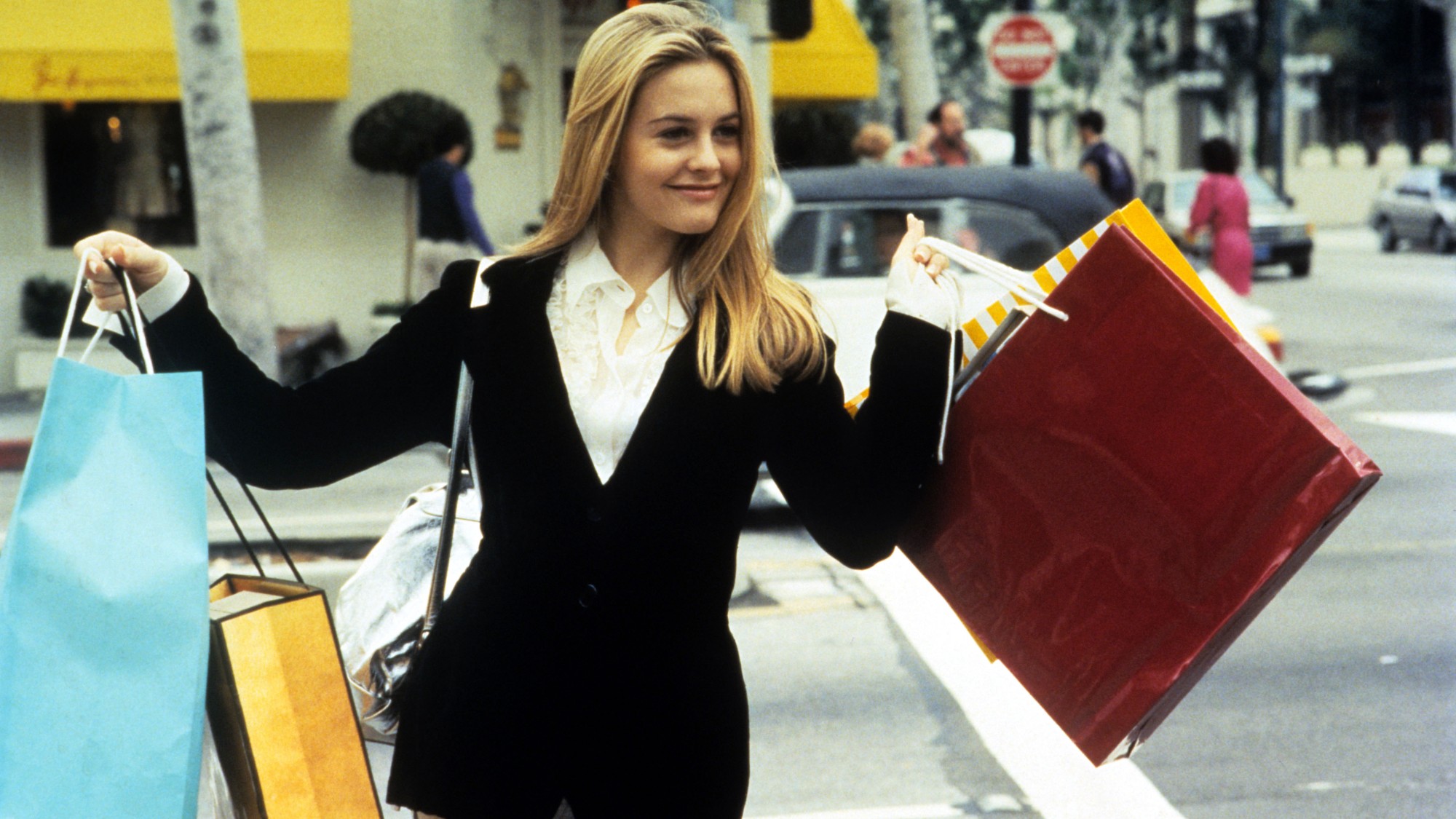 Britain's new retail returns nightmare
Britain's new retail returns nightmareIn the Spotlight Gen Z influencers and a 'poopy diaper' have shown up fault-lines in the system
-
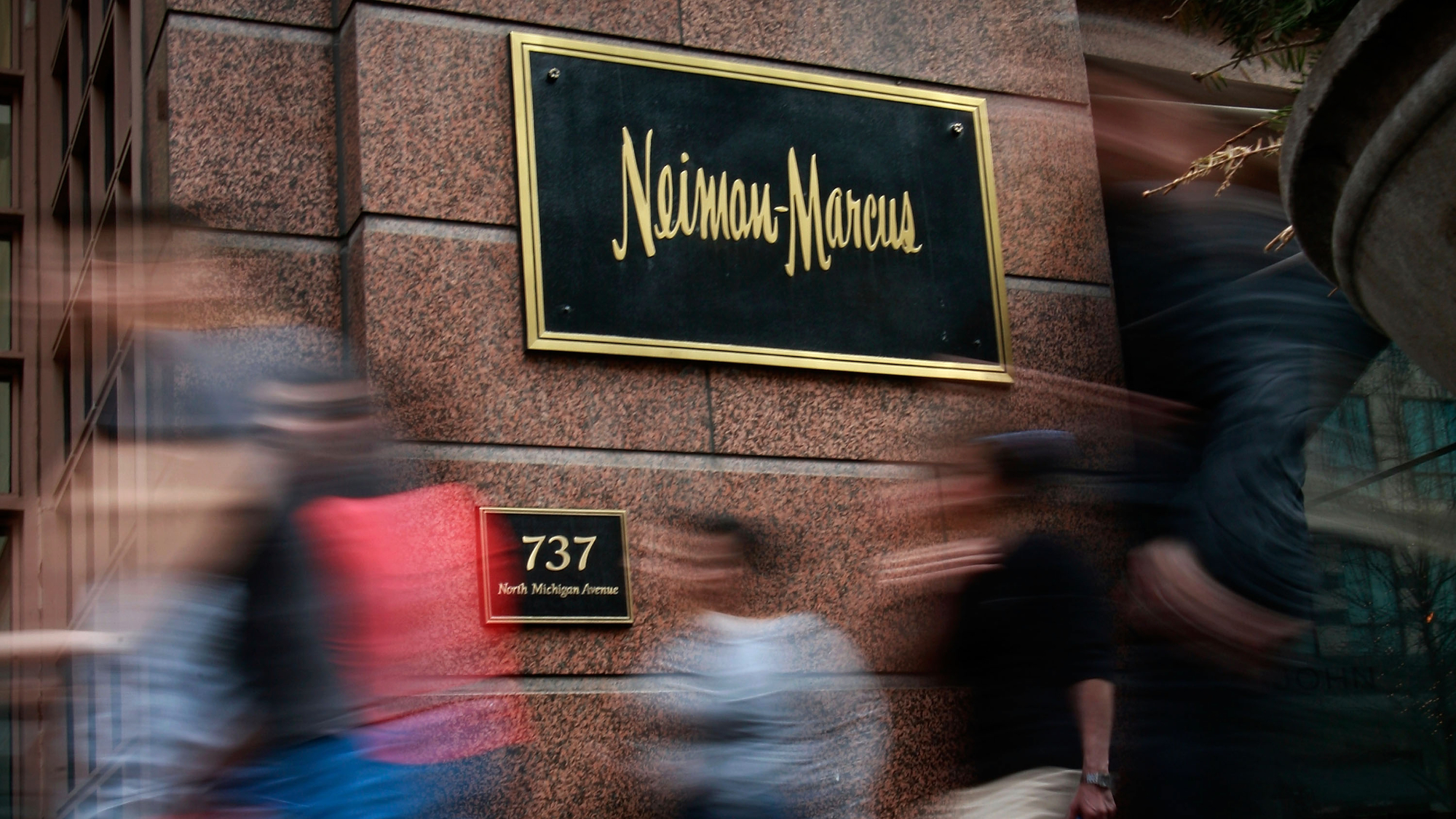 Saks buys Neiman Marcus in $2.65B deal
Saks buys Neiman Marcus in $2.65B dealSpeed Read Following the merger of the two legacy retailers, the new entity will be called Saks Global
-
 Retail media is seeing a surge this year
Retail media is seeing a surge this yearThe Explainer Amazon now makes more money from advertising than Coca-Cola's global revenue